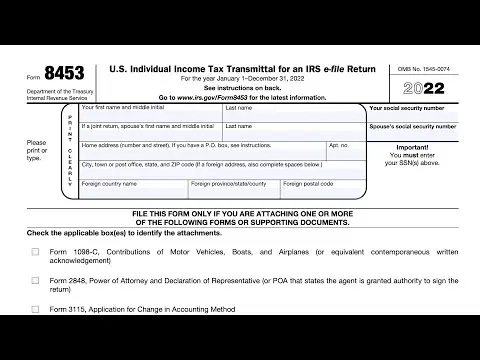Navigating The Maze Of Important IRS Tax Forms: A Comprehensive Guide

Tax season can be daunting, with numerous forms and schedules to navigate. Understanding the various necessary IRS tax forms is crucial whether you’re an individual filer, a small business owner, or a seasoned tax professional. This guide breaks down essential IRS tax forms, helping you to prepare your tax returns accurately and efficiently.
Table of Contents
Critical IRS Tax Forms Everyone Should Know
Navigating IRS paperwork can be overwhelming. Here are some of the most essential IRS tax forms that you should be familiar with:
Form 1040: The Cornerstone of Personal Tax Filing
- Purpose: Used to file individual income tax returns.
- Details: Captures information about income, deductions, and tax credits.
- Variants: Includes Form 1040-SR for seniors.
Schedule A: Itemizing Your Deductions
- Purpose: For those opting to itemize deductions instead of taking the standard deduction.
- Common Deductions: These include medical expenses, state taxes paid, and charitable contributions.
Schedule C: Profit or Loss from Business
- Purpose: Used by sole proprietors and single-member LLCs to report profits or losses.
- Key Features: Allows for the deduction of business expenses like home office costs and mileage.
Forms for Investment Income

Understanding forms related to investments is crucial for accurate reporting of gains and losses.
Schedule D: Capital Gains and Losses
- Purpose: Reports income from the sale of assets.
- Benefits: Helps calculate capital gains tax and includes provisions for offsetting losses against gains.
Form 1099-DIV & 1099-INT: Dividends and Interest Statements
- Purpose: Reports income from dividends and interest.
- Importance: Essential for accurately reporting investment income on Form 1040.
Specialized IRS Tax Forms
Some IRS tax forms address specific circumstances. Familiarity with these can save you from potential pitfalls.
Form 1098: Mortgage Interest Statement
- Purpose: Reports mortgage interest paid that may be deductible.
- Who Needs It: Homeowners with a mortgage.
Form 2555: Foreign Earned Income
- Purpose: Used by expatriates to report income earned abroad and claim exclusions.
- Benefits: Allows for the exclusion of a portion of foreign income and housing costs.
IRS Tax Forms for Business Owners
Business owners must handle additional IRS forms related to their business activities.
Form 1120: U.S. Corporation Income Tax Return
- Purpose: For corporations to report income, gains, losses, deductions, and credits.
- Details: Helps determine the corporation’s income tax liability.
Form 1065: Return of Partnership Income
- Purpose: Used by partnerships to report financial information.
- Features: Includes allocations of income, deductions, and credits to partners.
FAQs About Important IRS Tax Forms
Can I file IRS tax forms electronically? Yes, the IRS encourages electronic filing for faster processing and quicker refunds.
Where can I find IRS tax forms and instructions? The IRS website has all the forms and detailed instructions.
What happens if I use the wrong IRS tax form? Using the incorrect form can delay processing and potentially lead to fines. Always double-check the IRS guidelines.
How do I know if I need to file Schedule B with my Form 1040? You need to file Schedule B if you received more than $1,500 in taxable interest or dividends or have foreign accounts.
When is Form 4868 required, and what does it do? Form 4868 is used to request an automatic six-month extension to file your federal income tax return. However, it does not extend the time to pay any taxes owed. Filing this form by the April deadline can help avoid late-filing penalties.
What is the difference between Form 1099-MISC and Form 1099-NEC? Form 1099-MISC is used to report miscellaneous income, such as rent or prizes. Form 1099-NEC is specifically used to report non-employee compensation of $600 or more, such as payments to independent contractors.
Can I use Form 1040-EZ for my tax return? As of the 2018 tax year, Form 1040-EZ is no longer in use. Taxpayers now use the redesigned Form 1040 or Form 1040-SR for seniors, which simplifies the process for all filers.
What should I do if I make a mistake on my filed tax return? If you realize you’ve made an error after submitting your tax return, you should file Form 1040-X, Amended U.S. Individual Income Tax Return. This form allows you to correct the mistakes and can be used to claim a more favourable tax calculation.
Are there penalties for not reporting income reported on Form 1099? Yes, failing to report income that is documented on a Form 1099 can lead to interest charges on unpaid taxes and potential penalties for underreporting income.
How can I obtain old IRS tax forms for previous years? You can access last year’s IRS tax forms and their instructions through the IRS website’s Forms, Instructions & Publications section. This resource is helpful for amended tax returns or understanding past tax obligations.
What are the consequences of not filing IRS tax forms on time? : Not filing on time can result in late filing penalties, late payment penalties, and interest charges on taxes owed. If you anticipate a delay in filing, submitting Form 4868 to request an extension is advisable to avoid some penalties.
Is digital filing of IRS tax forms secure? Yes, the IRS uses modern encryption technology to ensure that digital filing (e-filing) is safe. E-filing is also faster and typically more accurate than paper filing, reducing the risk of errors and delays in processing your return.
Navigating the Maze of Important IRS Tax Forms: A Comprehensive Guide? Unlock the complexities of IRS tax forms with our comprehensive guide, simplifying navigation through the maze.
These FAQs aim to clarify common concerns and help taxpayers navigate the complexities of IRS tax forms confidently and effectively.
Conclusion
Understanding and using the correct IRS tax forms is crucial for compliance and optimizing your tax returns. Whether you’re dealing with personal income, investments, or business-related finances, the proper knowledge can streamline your tax filing process and help avoid common pitfalls. Always stay updated with the latest IRS revisions and consider consulting a tax professional for complex situations.






